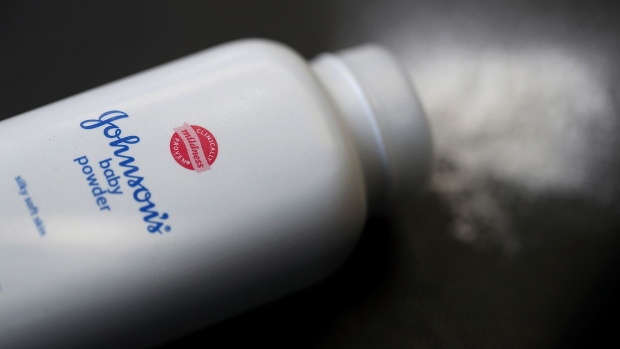Feb 6, 2020
J&J ordered to pay US$750M in punitive damages over talc
, Bloomberg News

Johnson & Johnson was ordered by a New Jersey jury to pay an additional US$750 million in punitive damages to a group of former Baby Powder users who had already been awarded US$37.2 million as compensation for cancers they blamed on asbestos in the talc-based product.
After the verdict Thursday in New Brunswick, the judge indicated she may reduce the punitive award to US$186.5 million, as per state law, an amount equaling five times the compensatory damages awarded to the plaintiffs last year.Jurors in J&J’s hometown concluded after about two hours of deliberation that the company’s conduct in manufacturing and marketing the product warranted punishment. A separate jury in September found the company liable for the cancers claims and made the initial award for actual damages.
The September verdict was one of five talc cases J&J lost last year, though it prevailed in eight others. J&J, which denies its 135-year-old baby powder line is contaminated with asbestos, still faces more than 16,000 suits from women who mostly say they used the talc-based product for genital hygiene and later developed cancer. Nearly a third of those suits were filed in the last year.
“We’re pleased that justice was done and the jury listened and heard us,” said Christopher Placitella, an attorney for the plaintiffs.
Jake Sargent, a J&J spokeswoman, couldn’t immediately comment on the punitive-damage award Thursday.
J&J is almost sure to appeal both verdicts in the New Brunswick case. While there’s no guarantee the company would win, it isn’t unusual for punitive awards, especially big ones, to be reduced or tossed by trial judges or appellate courts.
After a Philadelphia jury ordered J&J to pay more than US$8 billion to a man who claimed its Risperdal anti-psychotic drug caused him to grow female-sized breasts, a judge last month slashed the award by 99.9% to US$6.8 million.
The talc litigation may eventually cost the company as much as US$10 billion, according to Bloomberg Intelligence. Though Baby Powder accounts for only a small fraction of J&J’s annual revenue, it’s been a core brand for the company for more than a century.
Plaintiffs’ lawyers claim internal J&J documents show executives knew since the late 1960s that talc mined in places such as Vermont and Italy contained trace amounts of asbestos but failed to alert consumers or regulators. Asbestos is often found intertwined with talc when mined, though the company claims it is removed in the manufacturing process. The listed ingredients in J&J’s Baby Powder are talc and fragrance.
CEO Testimony
The New Brunswick case got special attention when J&J CEO Alex Gorsky testified last month. He was grilled over statements he made defending baby powder’s safety on national TV in 2018. Gorsky said he relied on internal experts in describing the product as safe and free of asbestos.Plaintiffs Douglas Barden, 65; David Etheridge, 57; D’Angela McNeill-George, 41; and Will Ronning, 46; said they faced long-term exposure to carcinogens as children because their parents used Baby Powder and another J&J talc-based product, Shower to Shower, on them. The four have all been diagnosed with mesothelioma, a cancer linked to asbestos.
J&J sold the rights to Shower to Shower in 2012 to the company now known as Bausch Health Cos., which replaced the talc in the product with cornstarch.
The case is Barden vs. Brenntag North America, L-1809-17, New Jersey Superior Court, County of Middlesex (New Brunswick).

